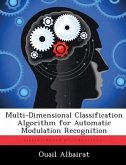It is a pleasure to read a study from an
author who very evidently not only has a strong grasp
of the concepts central to his study, but is also
well versed and widely experienced in the field. The
latter is evident in the wide range of allusions
provided by the author throughout the book, and in
the ease with which he draws on any aspect of
philosophical discourse that he needs - from the
Greek classics to contemporary communitarian debates.
The author has taken an important (and complex)
aspect of identity formation in (late) modernity,
perhaps most well known in Charles Taylor's
explication of the politics of recognition, and
considered how it might inform a theory of
leadership. The author sets out and defends a theory
of leadership that is not only about the leadership
of recognition, but leadership for recognition, by
recognition, in recognition, and through
recognition.
Prof. Mark Mason The Hong Kong Institute of
Education
author who very evidently not only has a strong grasp
of the concepts central to his study, but is also
well versed and widely experienced in the field. The
latter is evident in the wide range of allusions
provided by the author throughout the book, and in
the ease with which he draws on any aspect of
philosophical discourse that he needs - from the
Greek classics to contemporary communitarian debates.
The author has taken an important (and complex)
aspect of identity formation in (late) modernity,
perhaps most well known in Charles Taylor's
explication of the politics of recognition, and
considered how it might inform a theory of
leadership. The author sets out and defends a theory
of leadership that is not only about the leadership
of recognition, but leadership for recognition, by
recognition, in recognition, and through
recognition.
Prof. Mark Mason The Hong Kong Institute of
Education








